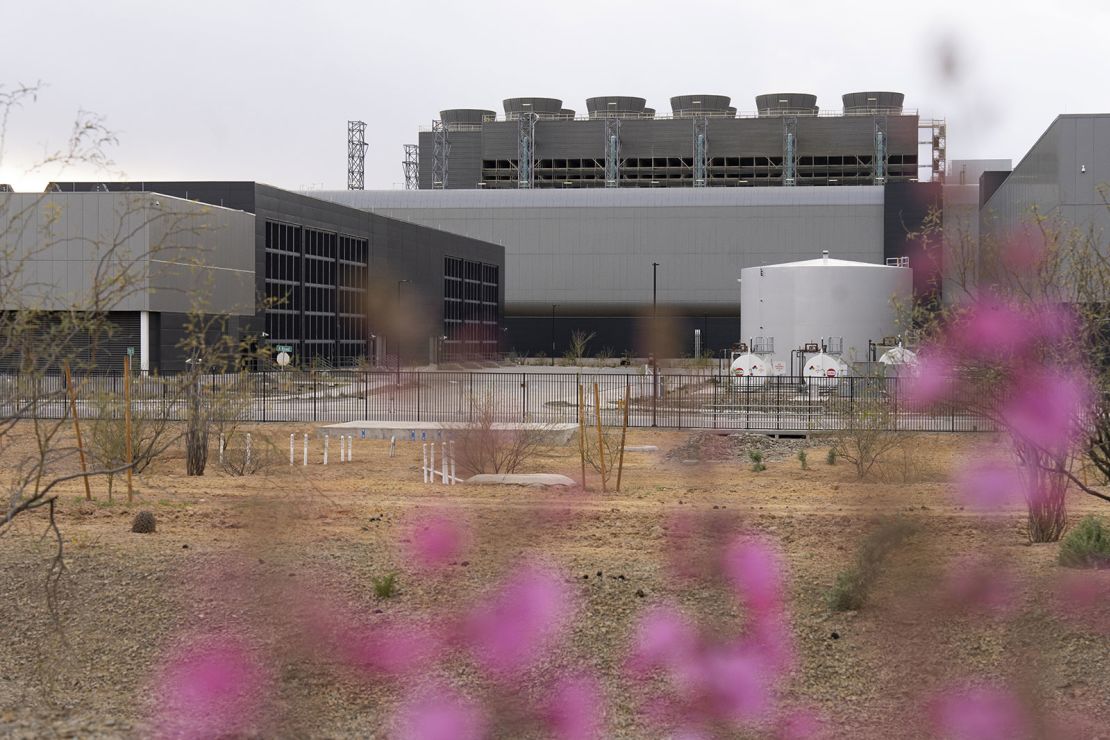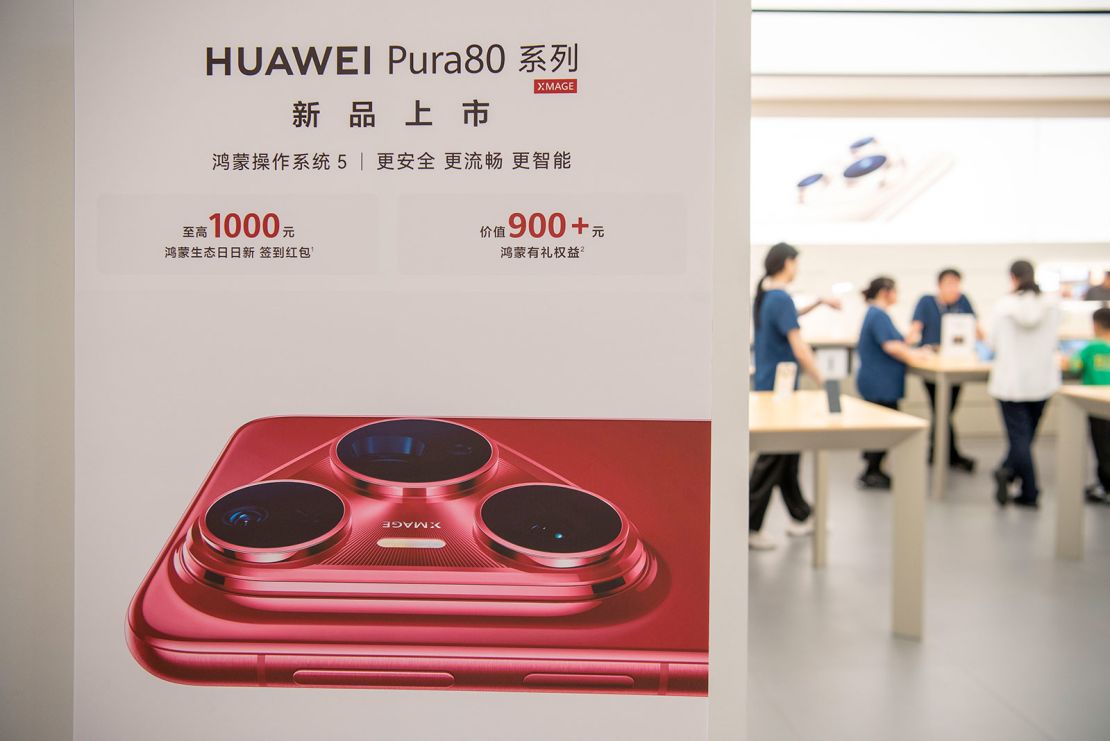Hong Kong
CNN
—
Taiwan has added China’s tech titan Huawei and chip giant Semiconductor Manufacturing International Corporation (SMIC) to its export control list, stepping up efforts to align with Washington’s crackdown on companies driving Beijing’s artificial intelligence ambitions.
Citing “concerns over weapons proliferation and national security,” Taiwan’s International Trade Administration updated its list of what it calls strategic high-tech commodities entities last week to include Huawei and SMIC, among hundreds of other entities in China, Myanmar, Russia, Iran and Pakistan. Under the restrictions, Taiwanese businesses will be required to apply for permits before exporting to the listed firms.
The new rules were announced amid escalating US-China tensions over advanced technologies including semiconductors and AI. Washington has grown increasingly concerned about its tech being used in Chinese military applications. Just last month, the Trump administration restricted sales of chip design software to China in its ongoing trade war with Beijing.
The latest move by Taiwan underscores its government’s active approach in working with the US – its largest unofficial partner – to plug any loopholes in tech restrictions against Beijing. China claims self-governing Taiwan as part of its territory despite having never controlled it.
Taiwan Semiconductor Manufacturing Company (TSMC), the world’s largest contract chipmaker, which supplies Apple and AI giant Nvidia, had produced microchips for Huawei until 2020, when the first Trump administration effectively banned it from supplying the Chinese company. Since the ban, Huawei has turned to SMIC – which has also faced US restrictions – to source chips.
With US restrictions already in place, experts said Taiwan’s move to tighten the screws on Huawei, SMIC and their subsidiaries is largely symbolic. CNN has reached out to Huawei and SMIC for comment.
“This reflects the Taiwanese government’s clearer intent to align its export control regulations more closely with those of the United States,” said Min-yen Chiang, a nonresident fellow at the Research Institute for Democracy, Society, and Emerging Technology, a government-funded think tank in Taipei. “In fact, Taiwan is the second country in the world – after the US – to publicly place SMIC and Huawei on an export control list.”
Taiwan’s “proactive” step signals that the government recognizes the need to play an active role in cooperating with the American government and addressing the security concerns at stake, Chiang said.
“From what I understand, the US government has long hoped that Taiwan would take greater initiative in regulating sensitive exports on its own, rather than simply following Washington’s lead,” he added.

Late last year, TSMC-made chips were reportedly found in a Huawei AI processor. While TSMC clarified it had not been supplying Huawei since 2020, the report stoked concerns in Washington that chips made by the Taiwanese company and intended for another Chinese firm, Sophgo, might have been rerouted to Huawei.
Reuters has reported that the US Department of Commerce has been investigating the incident and that TSMC could face a penalty of $1 billion or more from Washington. In November, the department also ordered the Taiwanese company to halt shipments of advanced chips to China.
“While the new controls aren’t a direct response to that specific incident, the discovery of TSMC-made chips in Huawei products last year served as a wake-up call: It prompted both TSMC and the Taiwan government to re-examine existing oversight mechanisms and identify gaps in preventing indirect supply chain loopholes,” said Brady Wang, associate director at Counterpoint Research, a market analysis firm.
During his first term, US President Donald Trump imposed targeted restrictions on companies like Huawei, banning American firms from partnering with them and restricting the sale of chips to them.
In 2022, then-President Joe Biden intensified these efforts, curbing the sale of advanced semiconductors to China over concerns they could power its military. The controls were subsequently expanded to include restrictions on sales of chipmaking equipment, high-bandwidth memory chips and even products manufactured outside the United States using American technology.
The mounting restrictions have put heavy pressure on China’s strategic sectors that Chinese leader Xi Jinping has prioritized, including semiconductors and AI. But Huawei and SMIC have made some strides in the production of advanced chips, and Beijing has pinned its hopes on these companies to lead innovation.

Although the US restrictions initially crippled its business, Huawei made a remarkable comeback in 2023 with the introduction of its Mate 60 smartphone, powered by advanced chips made by SMIC. The launch of the handset even triggered investigations by the US government.
Galen Zeng, a senior research manager at IDC, a market intelligence firm, said Monday that the timing of Taiwan’s export controls reflects multiple strategic considerations, including Washington’s concerns about the advanced chips found in Huawei’s devices.
“Coupled with US concerns over indirect supply routes, these developments have pushed Taiwan to tighten its export control mechanisms to enhance supply chain transparency,” he said.
While Huawei and SMIC may need to seek domestic alternatives in response to the export controls, restrictions like these would ultimately benefit Chinese suppliers, Zeng said.
“In the long term, this is likely to accelerate China’s push for semiconductor self-sufficiency, benefiting domestic equipment, materials, and component suppliers,” he said.
In a rare interview last week, Ren Zhenfei, the founder of Huawei, downplayed the impact of the US technology restrictions on Huawei and China overall, while saying its chip technology remains one generation behind US technology.
“There’s actually no need to worry about the chip issue. By using methods like stacking and clustering, the computational results are comparable to the most advanced levels,” he said, referring to the industry approach of bundling multiple chips to achieve higher performance.

